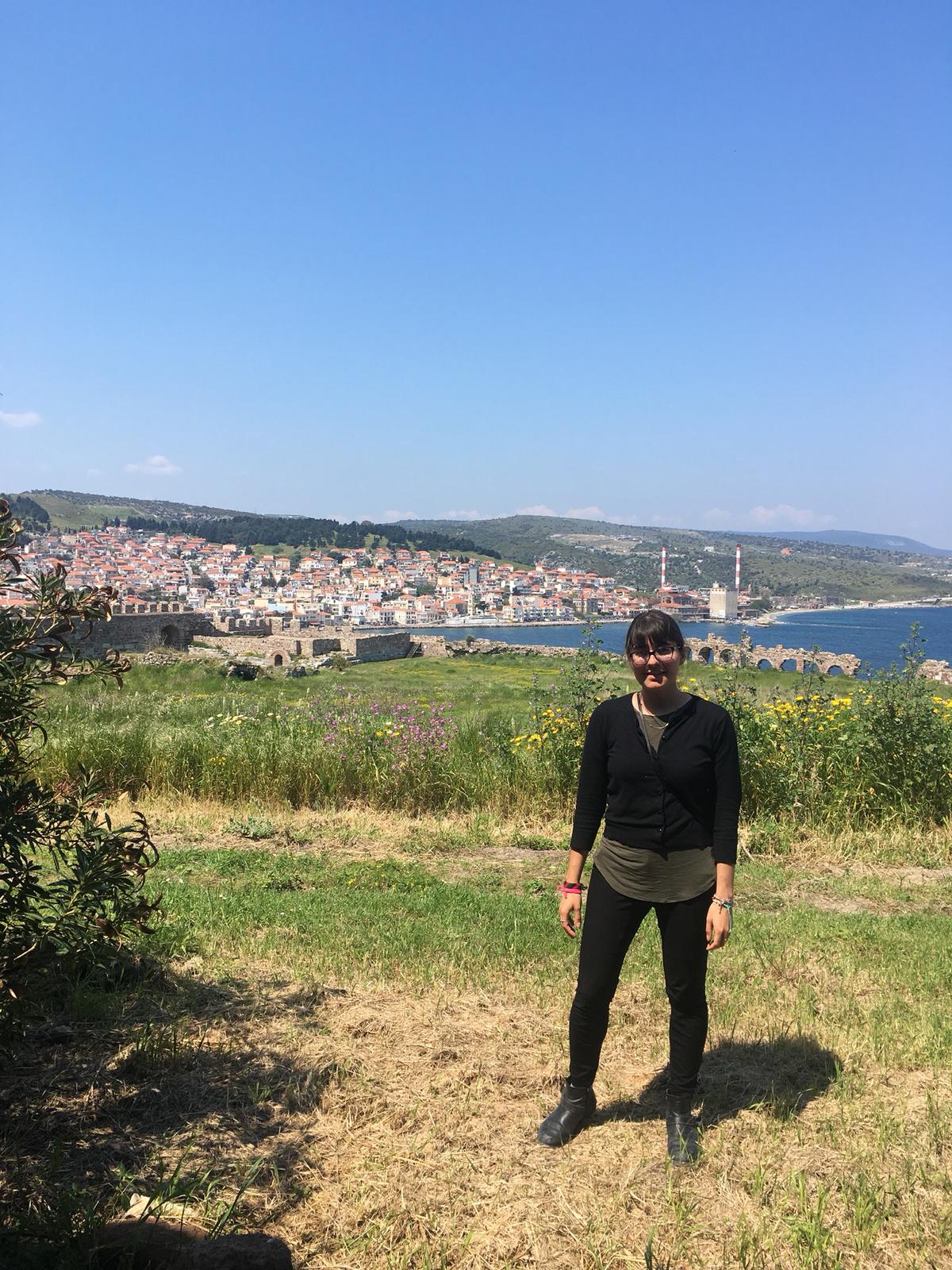
Stéfanie Morris during her time in Greece. Photo © courtesy of Stéfanie Morris.
Stéfanie Morris was born in a small town in Northern Quebec. Her mother is French-Canadian and her father is from Saskatchewan. Morris has lived all over Canada, but the biggest change for her was when she was 10 years old and her family moved from Eastern Canada to a small town in Alberta.
“I really associated with the experience of migration because I felt like I was completely uprooted and taken to a different culture and context and taken away from my family,” says Morris.
Even though she was not too far away from her family she says that she felt as if she had been separated from her French-Canadian culture.
“I was separated from my grandparents and from the people I had previously known and had to kind of balance the two identities that I was developing.”
Her life experience made her want to investigate how people can balance different cultures and incorporate them into their identities.
She studied Anthropology in the United States, hoping that it would help her to connect with her heritage a bit more and also help others who have gone through similar experiences.
Once she graduated, she decided to go back to Canada to get her Master’s in Public and International Affairs at the University of Ottawa.
“I had to do a lot of different kinds of courses like policy and diplomacy,” says Morris. “I did all the courses that I possibly could in international law and human rights and anything refugee immigration related.”
Morris learned about LERRN from her supervisor, who does research on refugees and immigration issues. She decided to apply for the position of the national legal framework in Tanzania, since she is starting law school in September.
“I thought it sounded fascinating,” says Morris. “I’m really excited that I got chosen. It is completely aligned with what I want to do.”
Morris has just finished her period volunteering at an NGO that does legal consultation with asylum seekers in Greece. She says that she has done some research about Tanzania and found out that the way things work in the African country are different than how they are done in Greece, but she is really excited to learn new procedures.
When asked about what is she looking forward to the most during her time in Tanzania, Morris says that it is the partnership and the opportunity to collaborate in the project.
“Some of the students there that I’ll be working with. I think that will be such a great partnership,” says Morris. “Having attempts to collaborate on this kind of project will be so eye opening for me and it will be such a great experience. Create this relationship this, working relationship and hopefully also a friendship that can help us to mutually share our solutions and ideas.”